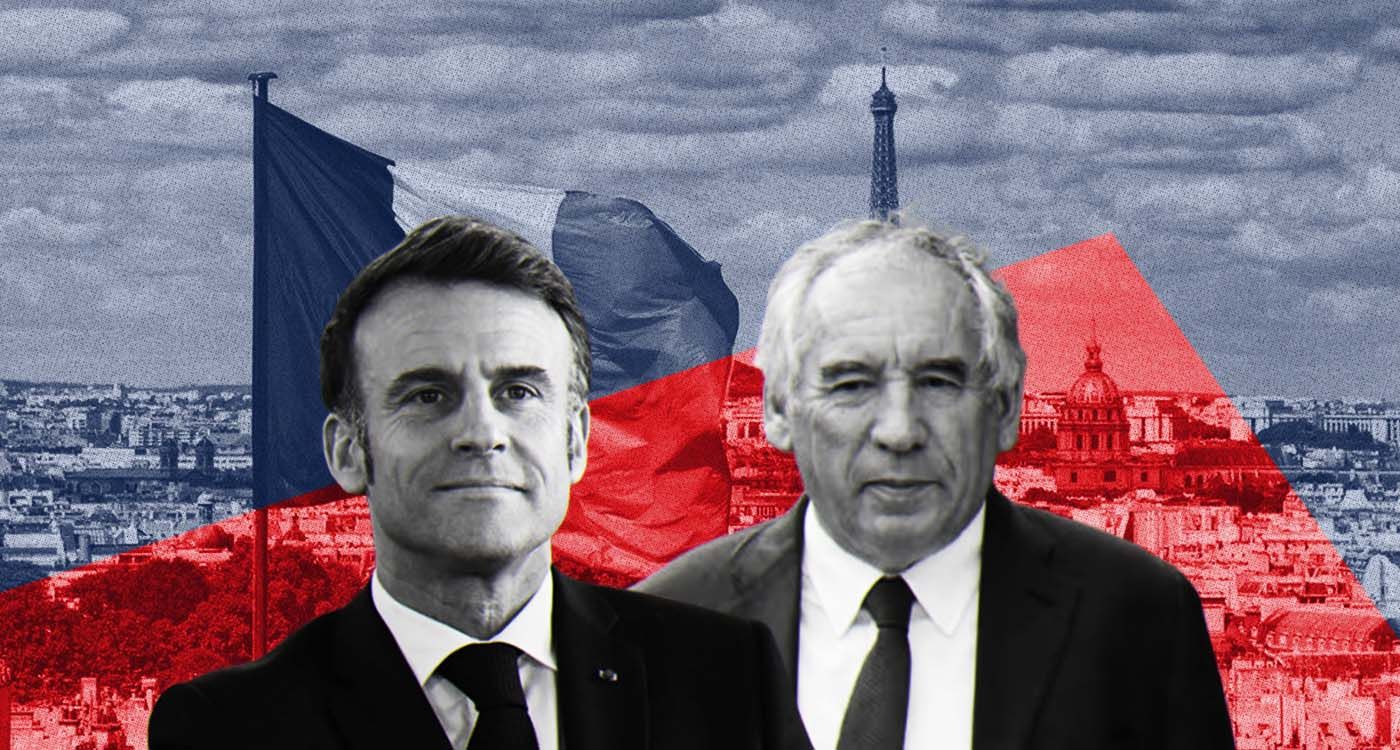- Home
- Middle East
- France: Macron, Bayrou and a Perilous Political Rentrée

©Ici Beyrouth
France’s political rentrée promises to be fraught with tensions. The Prime Minister is staking the government’s survival on a controversial austerity plan, while nationwide strikes scheduled for September 10 are already casting doubt on the country’s stability. With a fractured National Assembly and growing public anger, the executive is bracing for an exceptionally stormy season.
On Wednesday, President Emmanuel Macron convened his ministers at the Élysée for what many are already calling a “survival council.” Fresh from his summer retreat at Fort de Brégançon, Macron had hoped to project an image of control and stability. Instead, the government now teeters on the verge of collapse, both in Parliament and on the streets.
Prime Minister François Bayrou stunned allies by announcing that on September 8, he would call a vote of confidence on his debt-reduction plan. Hastily prepared and deeply contested, even within his own ranks, the gamble risks plunging France into yet another political crisis.
Bayrou’s Risky Gamble
The plan is clear: €44 billion in spending cuts for 2026, aimed at bringing the deficit below 3% of GDP by 2027, enough to reassure Brussels and calm financial markets. But the methods are explosive: scrapping public holidays, trimming social benefits and raising taxes on the wealthiest households. These measures land like a political time bomb on the eve of an already tense rentrée.
“I don’t understand this poker move,” said Raphaël Glucksmann, leader of the center-left Place Publique, on France 2. “No consultation, no dialogue and suddenly they’re asking for a blank check.”
Even within the presidential camp, doubts run deep. Former PM Gabriel Attal admitted the decision is “hard to defend,” while insisting it must nevertheless be assumed collectively.
An Elusive Majority
Opposition parties have already drawn battle lines: the Socialist Party (PS, centre-left), La France Insoumise (LFI, radical left) and the far-right Rassemblement National all intend to vote against the plan. This leaves Bayrou with almost no path to victory. Even within the Republicans (LR, center-right), often seen as the government’s potential swing allies, no consensus has emerged. “There’s no unity to back Bayrou,” a republican parliamentary source admitted.
The government’s survival may ultimately hinge on just a few dozen votes. A defeat would force Bayrou’s immediate resignation and plunge Macron into yet another institutional crisis, forcing him either to appoint a new Prime Minister or dissolve the National Assembly altogether. Public opinion is tilting in favor of the latter: an Ifop poll shows 63% of French voters now back an early dissolution, up sharply from 41% in June.
Markets and European Partners Unsettled
Markets are already reacting: the Paris stock exchange fell nearly 2%, while shares of French banks, heavily exposed to public debt, plummeted. Ten-year borrowing rates are rising, reviving fears of a potential eurozone debt crisis.
France’s public debt now stands at 114% of GDP; the third-highest in the eurozone, after Greece and Italy. European officials are privately warning that, should the government collapse, Paris might struggle to meet its financial commitments.
September 10: ‘Shut Everything Down’
As if political chaos wasn’t enough, social unrest is quietly reaching a tipping point. A grassroots movement born online, known as “Bloquons tout” (“Shut Everything Down”), has called for a nationwide shutdown on September 10. The goal: paralyze transport, schools, public services and infrastructure to protest what it calls an “unjust and antisocial” budget.
The appeal is resonating: a Toluna-Harris poll finds that 63% of French citizens support it. The specter of the Yellow Vests looms large, with images of roundabouts blocked, roadblocks and mass demonstrations echoing recent years. Some unions are still hesitant but appear willing to join: Sud Rail has filed a strike notice, while the CGT signals it may follow suit.
Political reactions are intensifying. Jean-Luc Mélenchon (LFI leader) urges turning September 10 into a general strike. Socialists pledge support without trying to co-opt the movement. Far-right RN is officially keeping its distance, but still denounces Bayrou’s “social wrecking.” Even within the majority, there are fears September 10 could spiral into an uncontrollable flashpoint.
Decisive Days Ahead
Coming days may prove pivotal. On September 8, Bayrou’s government faces its do-or-die confidence vote. Two days later, nationwide strikes and blockades could bring France to a standstill.
Many fear a chain reaction: if Bayrou falls on the 8th, protests could quickly morph into a movement directly challenging Macron. If Bayrou survives by a slim margin, the street may still render his government powerless.
Once again, Emmanuel Macron stands at the center of the storm. Should he fight to keep Bayrou at all costs, even at the price of a weakened, unpopular government? Or should he cut his losses and call new elections, risking an unpredictable outcome at the polls?
At the press briefing following the Council of Ministers, government spokeswoman Sophie Primas insisted Macron gives his “full support” to Bayrou. “He addressed the political situation and the challenges our country is facing at the very start of the Council, returned to it later and reiterated his backing,” she said.
But one former minister was blunt, “September 8 will be a turning point no matter what. Either the government falls, or it survives but becomes ungovernable. Either way, crisis lies ahead.”
Read more




Comments